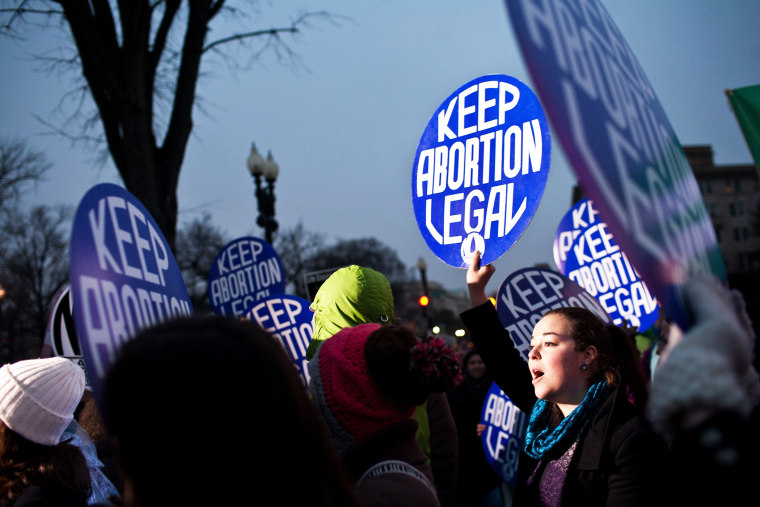On Election Night last week, as the consequences of the results started to set in, it wasn't long before those involved in the reproductive-rights debate started the clock: Roe v. Wade, all of a sudden, seemed to have an expiration date.Donald Trump, as a candidate, vowed to appoint right-wing justices to the Supreme Court, and with a far-right Republican majority in the Senate, there's every reason to believe they'll succeed in moving the high court even further to the right. There's already one vacancy -- expect that to be filled in early 2017 -- and if one or two of the center-left justices leave the bench for any reason over the next four years, the conservative majority would swell to six or seven members.The effects of such a move would affect American life in a broad number of ways for a generation, but on "60 Minutes" last night, CBS's Lesley Stahl asked the president-elect about one of the higher-profile issues.
STAHL: During the campaign, you said that you would appoint justices who were against abortion rights. Will you appoint-- are you looking to appoint a justice who wants to overturn Roe v. Wade?TRUMP: So look, here's what's going to happen-- I'm going to-- I'm pro-life. The judges will be pro-life. They'll be very—STAHL: But what about overturning this law--TRUMP: Well, there are a couple of things. They'll be pro-life.... [H]aving to do with abortion if it ever were overturned, it would go back to the states. So it would go back to the states and--STAHL: Yeah, but then some women won't be able to get an abortion?TRUMP: No, it'll go back to the states.
If it seemed as if the two were talking past one another, it's because they were. Stahl was making the point that if Roe v. Wade is overturned, millions of women would no longer be able to terminate unwanted pregnancies. Trump, overlooking this detail, emphasized that reproductive rights would become a state issue.They're both correct. If the right rejects the Roe precedent, states would be free to ban abortions, which in turn would curtail reproductive rights for women across much of the country.Trump added, by way of a defense, that many women will "have to go to another state" in order to have an abortion. Asked if that's an acceptable outcome to him, the president-elect added, "Well, we'll see what happens."Accept, we already know what will happen: women who can afford to travel to more progressive states will probably be able to maintain at least some of their reproductive rights, while women who lack the necessary resources will effectively be left with nothing.In the same "60 Minutes" interview, Stahl asked about Trump's perspective on marriage equality. "It's irrelevant because it was already settled," he replied. "It's law. It was settled in the Supreme Court. I mean, it's done."Couldn't one say the exact same thing about abortion? It was already settled; it's law; it was settled in the Supreme Court. But for Trump and his future Supreme Court nominees, issues that appear "done" can be undone.If that's not what the country wants, the country should've elected a different president.
